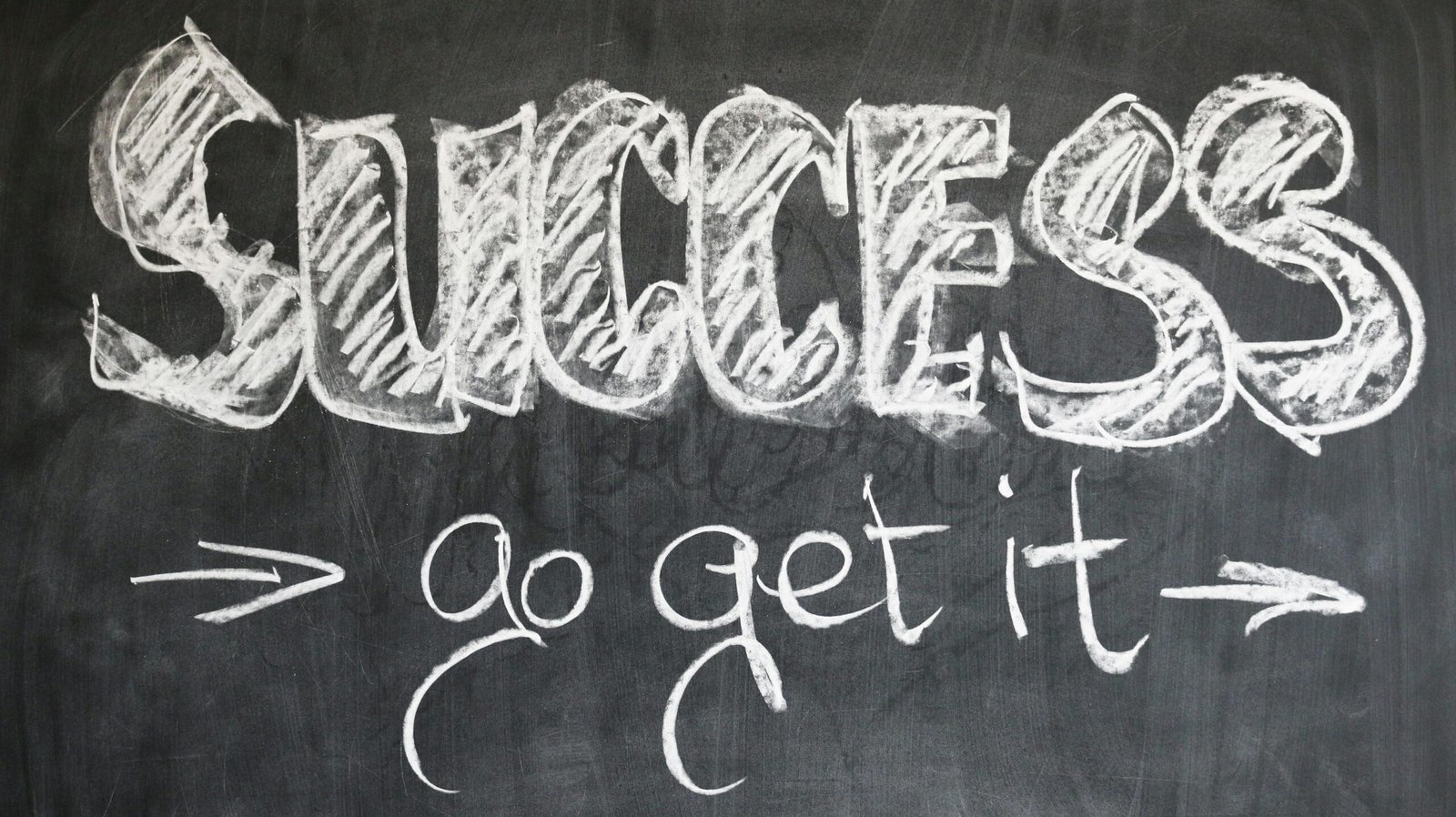In the age of constant connectivity, where we’re always just a click away from social media updates, text messages, and emails, it can sometimes feel impossible to truly disconnect. But here’s the thing—while technology has made the world more connected than ever, it’s also made it harder for us to take a step back and really focus on ourselves. That’s where social detoxing comes in.
Social detoxing involves taking a break from social media, digital devices, and sometimes even people who may be draining your energy. And while the idea of “disconnecting” might seem a bit daunting in today’s hyper-connected world, the benefits of regularly detoxing from social interactions and online platforms are numerous. From improving your mental health to enhancing your relationships, social detoxing could be just what you need to reset and refocus.
What Is Social Detoxing?
Social detoxing is essentially a deliberate decision to reduce or eliminate your exposure to social media, digital communications, and sometimes even physical social interactions for a set period of time. The goal isn’t necessarily to cut yourself off from society, but rather to step away from the constant barrage of information and distractions that can leave you feeling stressed, overwhelmed, and emotionally drained.
It can take many forms, such as:
- Digital Detox: Taking a break from social media apps, emails, and even texting for a few days or weeks.
- Social Detox: Reducing or temporarily stopping social engagements, especially if they are emotionally taxing or no longer bring you joy.
- Physical Detox: Unplugging from technology by spending time in nature, reading books, or engaging in more face-to-face conversations.
Why Should You Consider a Social Detox?
The thought of “unplugging” may feel like a big challenge, especially when social media has become such a significant part of our daily lives. However, there are several compelling reasons why a social detox is worth considering.
1. Improved Mental Health: Reduce Anxiety and Stress
The constant influx of notifications, news updates, and social comparisons can contribute to feelings of anxiety, stress, and even depression. Social media platforms, in particular, can create a “highlight reel” effect, where you’re bombarded with the best aspects of other people’s lives, making you feel inadequate or left out. Taking time off from these platforms allows your mind to reset and regain clarity without the pressure of comparison or the stress of keeping up with online trends.
2. Better Sleep: Disconnecting for a Restful Night
We’ve all been guilty of scrolling through social media right before bed, but did you know this habit can interfere with your sleep? The blue light emitted from screens can disrupt your circadian rhythm, making it harder for your brain to wind down. A social detox, especially at night, can help you create a more peaceful bedtime routine, allowing you to sleep better and wake up feeling refreshed.
3. Increased Productivity: Focus on What Matters
Constantly checking your phone or responding to emails can be incredibly distracting. It takes time and energy away from your work or personal goals. By detoxing from digital distractions, you can regain focus, boost your productivity, and complete tasks without the constant interruptions of new notifications.
4. Strengthened Relationships: Be Present in the Moment
Social media has revolutionized how we stay in touch with people, but it has also introduced a paradox: while we are constantly connected, we are often disconnected from the people physically around us. Taking a break from your devices and social obligations can help you be more present with those who matter most—your family, friends, or partner. You’ll find yourself engaging in deeper conversations and creating stronger bonds.
5. Greater Self-Awareness: Rediscover Your True Self
When we’re always plugged in, it’s easy to lose track of who we are and what we want out of life. Social media and external influences can make us more focused on how others see us than how we see ourselves. A social detox provides the mental space to reconnect with your inner thoughts, desires, and goals, without the noise of outside influence. It’s a great opportunity to rediscover your passions, values, and what truly makes you happy.
How to Start a Social Detox
Now that you know the benefits, you might be wondering how to get started. The good news is that a social detox doesn’t have to be extreme, and you don’t have to go offline completely. Here are some practical steps to help you ease into the process:
1. Set Clear Intentions
Before you dive into your detox, it’s important to set clear intentions. Are you detoxing from social media? Digital distractions? Or maybe it’s a more general detox from people who drain your energy? Defining your goals will help you stay focused and make the process more effective.
2. Start Small: Choose One Platform or Habit to Detox From
If the idea of a complete social detox seems overwhelming, start small. Choose one platform or one social habit to break. For example, you could start by avoiding Facebook for a week or stop checking your work emails during the weekend. Over time, you can gradually expand your detoxing efforts.
3. Set Boundaries for Your Digital Time
If completely disconnecting isn’t possible, set specific boundaries for your digital time. You could designate certain times of the day for checking your phone, and keep the rest of the day device-free. Try using apps that limit your screen time or block distracting websites during work hours.
4. Take a “Digital Sabbath”
Consider taking one day a week to completely disconnect. A “digital Sabbath” gives you the opportunity to focus on other activities—whether it’s spending time in nature, doing hobbies you enjoy, or connecting with people face-to-face—without the constant pull of technology.
5. Use the Time to Reconnect with Yourself
When you detox from the digital world, it opens up space to focus on activities that nourish your mind and soul. Read books, journal, meditate, exercise, or spend time with loved ones. Use the time you would normally spend scrolling through your phone to explore new activities that bring you joy and fulfillment.
The Mental and Emotional Benefits of Social Detoxing
A social detox isn’t just about reducing screen time; it’s about giving yourself permission to rest and reset, both mentally and emotionally. Here are some mental and emotional benefits you can expect:
1. Emotional Clarity
Without the constant bombardment of opinions, updates, and virtual noise, you’ll find it easier to process your own emotions. Social detoxing provides space for you to check in with yourself and understand how you’re really feeling, without the influence of others.
2. Enhanced Creativity
When you step away from the digital world, your brain gets a chance to recharge. This can lead to enhanced creativity, as you allow yourself to think more freely without being constantly distracted. Whether it’s coming up with new ideas for work, personal projects, or hobbies, you’ll likely feel more inspired after a detox.
3. Emotional Resilience
When you take time away from emotionally draining people or situations (whether online or in person), you give yourself the opportunity to rebuild emotional resilience. You’re able to recharge and regain emotional strength to face challenges with a clearer, more balanced mindset.
4. Increased Mindfulness
A social detox encourages mindfulness. Being present in the moment becomes much easier when you’re not constantly checking your phone or thinking about your next social interaction. With a detox, you can focus on the here and now, improving your ability to appreciate the small joys in life.
Tips for Maintaining a Healthy Balance After a Detox
Once you’ve experienced the benefits of social detoxing, it’s important to maintain a healthy balance between your digital and social life. Here are some tips to help you stay mindful of your screen time and social interactions:
- Set Daily Limits: Establish specific times when you’ll check social media or emails to avoid getting sucked into mindless scrolling.
- Be Selective with Social Engagements: Choose social interactions that bring positivity and avoid those that feel draining or forced.
- Practice Regular “Digital Sabbaths”: Consider taking regular breaks from your devices to give yourself the space to recharge.
Conclusion: The Power of Disconnecting
Social detoxing isn’t just a temporary escape—it’s an investment in your well-being. By regularly stepping away from the digital world and social pressures, you give yourself the space to recharge, improve your mental health, and reconnect with your true self. Whether it’s for a few hours, a weekend, or longer, the benefits of detoxing from social interactions are undeniable. So, take a break, unplug, and see how it transforms your life!
FAQs
1. How often should I do a social detox?
There’s no one-size-fits-all answer, but many people find it helpful to do a digital detox once a week (a “digital Sabbath”) or take breaks for a few days every month. It really depends on your needs and lifestyle.
2. Will I miss out on important things if I detox from social media?
While it’s true you might miss some updates, most important things, like family emergencies or work-related news, will find their way to you. Detoxing allows you to engage in life more mindfully, rather than constantly reacting to every notification.
3. Can social detoxing improve my work-life balance?
Yes! Disconnecting from digital distractions and taking time away from social commitments can help you refocus and prioritize what matters most, creating a healthier work-life balance.
4. How do I handle feeling FOMO (fear of missing out) during a detox?
It’s natural to feel FOMO, but remind yourself that the benefits of detoxing—better mental health, more time for yourself, and deeper connections—far outweigh any temporary feelings of missing out.
**5. Can I detox from social media without
deleting my accounts?**
In the age of constant connectivity, where we’re always just a click away from social media updates, text messages, and emails, it can sometimes feel impossible to truly disconnect. But here’s the thing—while technology has made the world more connected than ever, it’s also made it harder for us to take a step back and really focus on ourselves. That’s where social detoxing comes in.
Social detoxing involves taking a break from social media, digital devices, and sometimes even people who may be draining your energy. And while the idea of “disconnecting” might seem a bit daunting in today’s hyper-connected world, the benefits of regularly detoxing from social interactions and online platforms are numerous. From improving your mental health to enhancing your relationships, social detoxing could be just what you need to reset and refocus.
What Is Social Detoxing?
Social detoxing is essentially a deliberate decision to reduce or eliminate your exposure to social media, digital communications, and sometimes even physical social interactions for a set period of time. The goal isn’t necessarily to cut yourself off from society, but rather to step away from the constant barrage of information and distractions that can leave you feeling stressed, overwhelmed, and emotionally drained.
It can take many forms, such as:
- Digital Detox: Taking a break from social media apps, emails, and even texting for a few days or weeks.
- Social Detox: Reducing or temporarily stopping social engagements, especially if they are emotionally taxing or no longer bring you joy.
- Physical Detox: Unplugging from technology by spending time in nature, reading books, or engaging in more face-to-face conversations.
Why Should You Consider a Social Detox?
The thought of “unplugging” may feel like a big challenge, especially when social media has become such a significant part of our daily lives. However, there are several compelling reasons why a social detox is worth considering.
1. Improved Mental Health: Reduce Anxiety and Stress
The constant influx of notifications, news updates, and social comparisons can contribute to feelings of anxiety, stress, and even depression. Social media platforms, in particular, can create a “highlight reel” effect, where you’re bombarded with the best aspects of other people’s lives, making you feel inadequate or left out. Taking time off from these platforms allows your mind to reset and regain clarity without the pressure of comparison or the stress of keeping up with online trends.
2. Better Sleep: Disconnecting for a Restful Night
We’ve all been guilty of scrolling through social media right before bed, but did you know this habit can interfere with your sleep? The blue light emitted from screens can disrupt your circadian rhythm, making it harder for your brain to wind down. A social detox, especially at night, can help you create a more peaceful bedtime routine, allowing you to sleep better and wake up feeling refreshed.
3. Increased Productivity: Focus on What Matters
Constantly checking your phone or responding to emails can be incredibly distracting. It takes time and energy away from your work or personal goals. By detoxing from digital distractions, you can regain focus, boost your productivity, and complete tasks without the constant interruptions of new notifications.
4. Strengthened Relationships: Be Present in the Moment
Social media has revolutionized how we stay in touch with people, but it has also introduced a paradox: while we are constantly connected, we are often disconnected from the people physically around us. Taking a break from your devices and social obligations can help you be more present with those who matter most—your family, friends, or partner. You’ll find yourself engaging in deeper conversations and creating stronger bonds.
5. Greater Self-Awareness: Rediscover Your True Self
When we’re always plugged in, it’s easy to lose track of who we are and what we want out of life. Social media and external influences can make us more focused on how others see us than how we see ourselves. A social detox provides the mental space to reconnect with your inner thoughts, desires, and goals, without the noise of outside influence. It’s a great opportunity to rediscover your passions, values, and what truly makes you happy.
How to Start a Social Detox
Now that you know the benefits, you might be wondering how to get started. The good news is that a social detox doesn’t have to be extreme, and you don’t have to go offline completely. Here are some practical steps to help you ease into the process:
1. Set Clear Intentions
Before you dive into your detox, it’s important to set clear intentions. Are you detoxing from social media? Digital distractions? Or maybe it’s a more general detox from people who drain your energy? Defining your goals will help you stay focused and make the process more effective.
2. Start Small: Choose One Platform or Habit to Detox From
If the idea of a complete social detox seems overwhelming, start small. Choose one platform or one social habit to break. For example, you could start by avoiding Facebook for a week or stop checking your work emails during the weekend. Over time, you can gradually expand your detoxing efforts.
3. Set Boundaries for Your Digital Time
If completely disconnecting isn’t possible, set specific boundaries for your digital time. You could designate certain times of the day for checking your phone, and keep the rest of the day device-free. Try using apps that limit your screen time or block distracting websites during work hours.
4. Take a “Digital Sabbath”
Consider taking one day a week to completely disconnect. A “digital Sabbath” gives you the opportunity to focus on other activities—whether it’s spending time in nature, doing hobbies you enjoy, or connecting with people face-to-face—without the constant pull of technology.
5. Use the Time to Reconnect with Yourself
When you detox from the digital world, it opens up space to focus on activities that nourish your mind and soul. Read books, journal, meditate, exercise, or spend time with loved ones. Use the time you would normally spend scrolling through your phone to explore new activities that bring you joy and fulfillment.
The Mental and Emotional Benefits of Social Detoxing
A social detox isn’t just about reducing screen time; it’s about giving yourself permission to rest and reset, both mentally and emotionally. Here are some mental and emotional benefits you can expect:
1. Emotional Clarity
Without the constant bombardment of opinions, updates, and virtual noise, you’ll find it easier to process your own emotions. Social detoxing provides space for you to check in with yourself and understand how you’re really feeling, without the influence of others.
2. Enhanced Creativity
When you step away from the digital world, your brain gets a chance to recharge. This can lead to enhanced creativity, as you allow yourself to think more freely without being constantly distracted. Whether it’s coming up with new ideas for work, personal projects, or hobbies, you’ll likely feel more inspired after a detox.
3. Emotional Resilience
When you take time away from emotionally draining people or situations (whether online or in person), you give yourself the opportunity to rebuild emotional resilience. You’re able to recharge and regain emotional strength to face challenges with a clearer, more balanced mindset.
4. Increased Mindfulness
A social detox encourages mindfulness. Being present in the moment becomes much easier when you’re not constantly checking your phone or thinking about your next social interaction. With a detox, you can focus on the here and now, improving your ability to appreciate the small joys in life.
Tips for Maintaining a Healthy Balance After a Detox
Once you’ve experienced the benefits of social detoxing, it’s important to maintain a healthy balance between your digital and social life. Here are some tips to help you stay mindful of your screen time and social interactions:
- Set Daily Limits: Establish specific times when you’ll check social media or emails to avoid getting sucked into mindless scrolling.
- Be Selective with Social Engagements: Choose social interactions that bring positivity and avoid those that feel draining or forced.
- Practice Regular “Digital Sabbaths”: Consider taking regular breaks from your devices to give yourself the space to recharge.
Conclusion: The Power of Disconnecting
Social detoxing isn’t just a temporary escape—it’s an investment in your well-being. By regularly stepping away from the digital world and social pressures, you give yourself the space to recharge, improve your mental health, and reconnect with your true self. Whether it’s for a few hours, a weekend, or longer, the benefits of detoxing from social interactions are undeniable. So, take a break, unplug, and see how it transforms your life!
FAQs
1. How often should I do a social detox?
There’s no one-size-fits-all answer, but many people find it helpful to do a digital detox once a week (a “digital Sabbath”) or take breaks for a few days every month. It really depends on your needs and lifestyle.
2. Will I miss out on important things if I detox from social media?
While it’s true you might miss some updates, most important things, like family emergencies or work-related news, will find their way to you. Detoxing allows you to engage in life more mindfully, rather than constantly reacting to every notification.
3. Can social detoxing improve my work-life balance?
Yes! Disconnecting from digital distractions and taking time away from social commitments can help you refocus and prioritize what matters most, creating a healthier work-life balance.
4. How do I handle feeling FOMO (fear of missing out) during a detox?
It’s natural to feel FOMO, but remind yourself that the benefits of detoxing—better mental health, more time for yourself, and deeper connections—far outweigh any temporary feelings of missing out.
5. Can I detox from social media without deleting my accounts?
Absolutely! Social detoxing doesn’t require deleting your accounts. You can simply take a break from checking your feeds, set limits on screen time, or use tools that block distracting apps.




